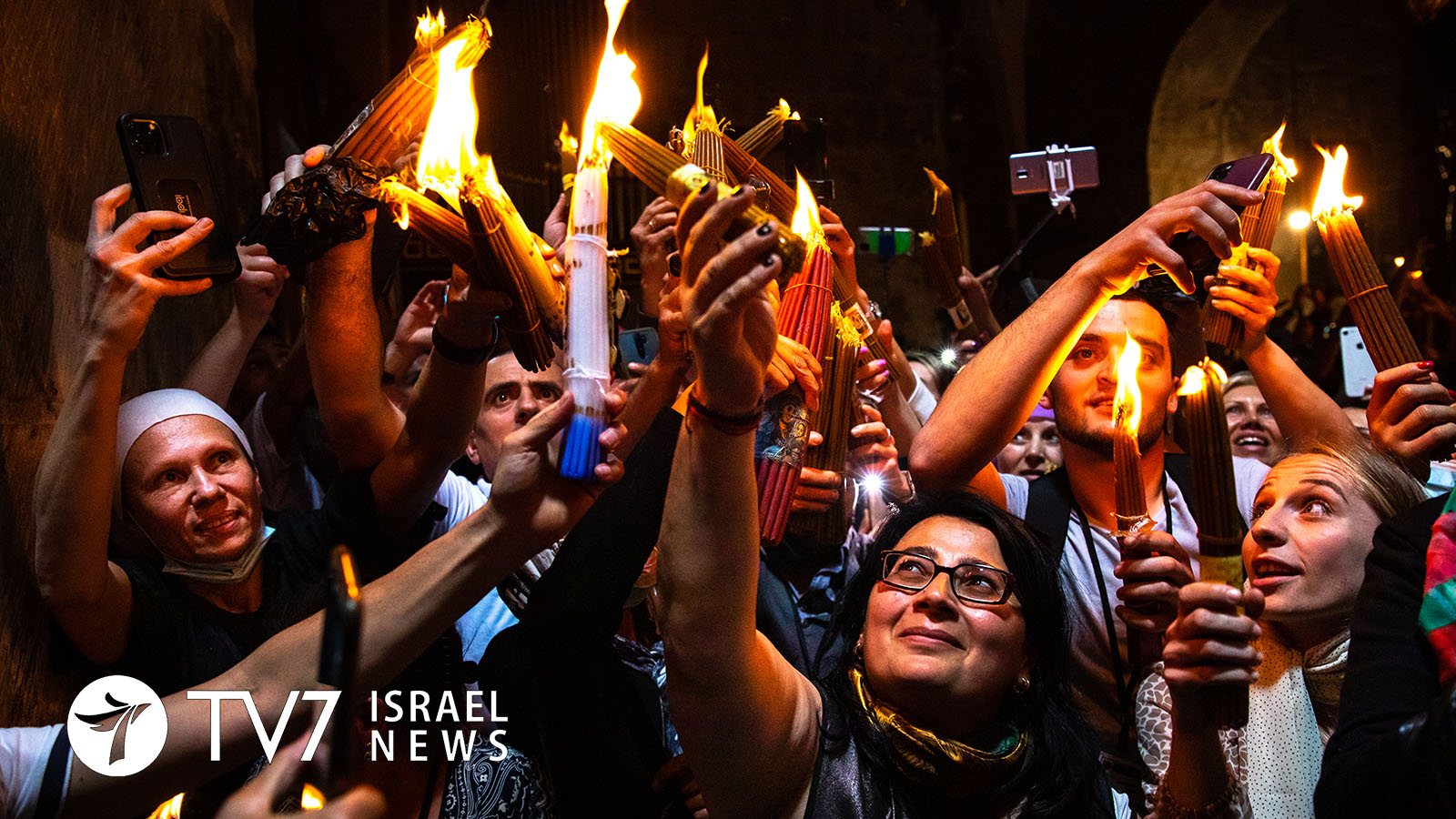Orthodox Christians celebrate the Holy Fire ceremony at Jerusalem’s Church of the Holy Sepulchre, in what is one of the most colorful events on the Easter calendar season.
The church is revered church by many Christians as the site of Jesus’s crucifixion, burial and resurrection.
In accordance with tradition, Jerusalem’s Greek Orthodox Patriarch Theophilos III emerged from a crypt within the Holy Sepulchre where Jesus was entombed 2,000 years ago with a candle that is believed to have been mysteriously ignited in what is considered a Holy Saturday miracle each year before Orthodox Easter Sunday. The flame is then shared with those gathered to symbolize Jesus’s resurrection.
Pre-coronavirus, the Holy Fire ceremony typically drew tens of thousands of the Orthodox Christian faithful.
With Jerusalem under lockdown in 2020, the last Holy Fire ceremony was held in the near-empty church. This year, however, at least 2,500 worshippers were able to attend, thanks to Israel’s swift vaccination roll-out that has largely contained the disease over the past few months.
While restrictions on gatherings have been greatly eased for local residents, there are still curbs on visitors from abroad. Officials are now planning a resumption of international tourism in the coming months.
“Last year it was a sad year,” said Rosaline Manees, a pilgrim from Jaffa told Reuters. “This year is better, though not like other years as pilgrims from all over the world are not visiting the country. Today it is only us who live in the country, but sure – better than last year.”
This season’s religious holidays in the Holy Land, home to religious sites sacred to Christians, Jews and Muslims, have been overshadowed by the Lag B’Omer tragedy. Yesterday was declared a day of national mourning for 45 Jewish worshippers, who were asphyxiated and crushed to death overnight between last Thursday and Friday at a religious festival at Mount Meron in the north of the country. Children were among the casualties.
40-year-old Holy Fire attendee Zaira Didmanidze, who has a young son, said she cried for the children who lost their lives.
Condolences for the victims emanated from all religious and ethnic sectors in Israel.
The leader of the Israeli Christian Aramaic Association, Shadi Halloul, said: “Jesus replied… ‘Love your neighbor as yourself’..Matthew 22:37-40. The People in Meron tragedy are not just our neighbors, we as Christian Aramaic community also share with them common Aramaic roots & language of our common ancestors.”
In the immediate aftermath of the tragedy, many local Arab villages set up stands to offer food and drink to evacuees from the site.
The mayor of the nearby Druze town of Beit Jan said that “residents and the local council join in the grief of the entire nation.” Mayor Radi Najm said local people opened their homes to help survivors of the incident, and that he had ordered the town’s emergency services “to provide any help necessary to the rescue crews.”
Hundreds of people lined up to donate blood in Tel Aviv.
Expression of sadness also came from several Muslim Arab-Israeli Members of Knesset (MKs). Ra’am leader MK Mansour Abbas expressed condolences to the bereaved amid his “difficult feelings over the terrible disaster.” MK Ahmad Tibi of the Joint List tweeted of “a terrible disaster” and his “deep sorrow for those who died on the day they came to celebrate. The leader of the Joint List faction Ayman Odeh spoke of “heartache” for the dozens of families “left torn and bereaved,” adding that it was “a small ray of light in the great tragedy” to see Jews and Arabs work together in response to the disaster.
Several world leaders, including US President Joe Biden, issued formal condolences to the State of Israeli for the tragedy.
